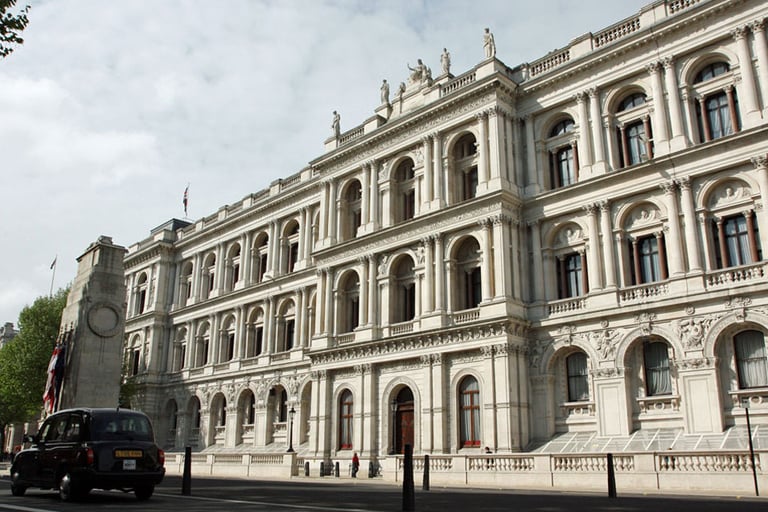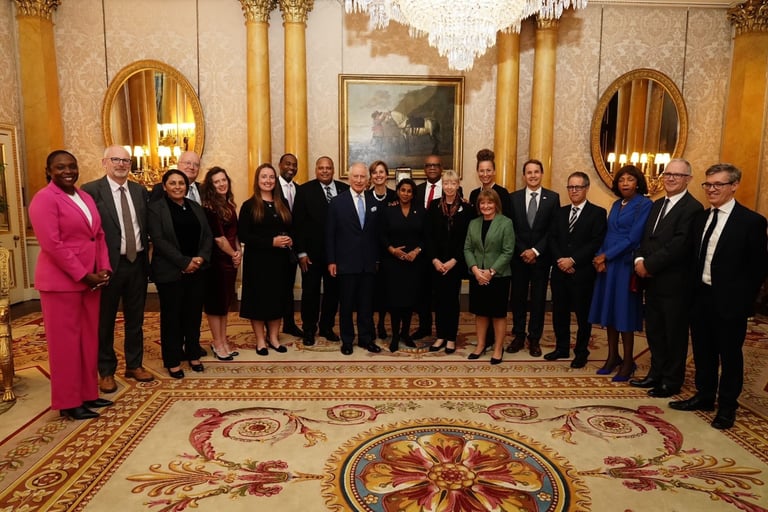Overseas Territories and Constitutional Law
The Constitution is in many ways the ‘gold standard’ of political development in the modern world. Constitutions are often considered emblematic of the ‘social contract’ between state and citizen, which rests on democratic ideals such as the consent of the governed, human rights, and the rule of law. Yet constitutionalism is a tricky and nuanced subject in Britain and its Overseas Territories.
NEWS FROM THE OVERSEAS TERRITORIESRESEARCH
The Constitution is in many ways the ‘gold standard’ of political development in the modern world. Constitutions are often considered emblematic of the ‘social contract’ between state and citizen, which rests on democratic ideals such as the consent of the governed, human rights, and the rule of law. Yet constitutionalism is a tricky and nuanced subject in Britain and its Overseas Territories.
The United Kingdom famously has an ‘unwritten constitution’. This means that the ideas at the core of the state are not written in a single document, but rather dispersed across various laws, traditions, and norms.
Yet under this unwritten constitution, each of Britain’s 14 Overseas Territories has its own written constitution which establishes the roles and functions of local government, begging the question, what exactly is the nature of the constitutional relationship between Britain and its Territories?
Britain and its Overseas Territories have a unique modern partnership supported through formal and informal institutions. While the United Kingdom ultimately holds ultimate political authority over the Territories, their governance has seen various stages of constitutional advancement since the 1960s and a constant maintained dialogue with the UK through Joint Ministerial Councils.
Joint Ministerial Council (JMC) defines the relation between the governments of Britain and its OTs. It is an annual intergovernmental meeting which takes place in London, in FCDOs Lancaster House. Local OT Governments and Ministers of HM Government, supported by Civil Servants from across Whitehall, but particularly Foreign, Commonwealth and Development Office.
This allows Overseas Territories to exercise considerable autonomy. They are not ‘colonies’ either in UK law or in political practice because they are not completely legislated for in London. Thanks to a period of rapid constitutional advancement from the 1960s in the decolonial wave, Overseas Territories are a unique and modern form of postcolonial governance with many democratic features.
For example, Territories elect their own Governments and make their own laws within the bounds provided by their constitutions. The Governor, who represents the Crown, is expected to consult with local Cabinets in any use of their powers. And, as discussed previously, the Joint Ministerial Council provides a soft democratic mechanism for Overseas Territories to consult with the UK.
While the relationship between Britain and its Overseas Territories would certainly benefit from closer diplomatic ties, the complexity of the constitutional mechanism that keeps territories affiliated yet not subject to the British government is certainly a nuanced and admirable piece of statecraft. Each of Britain’s Overseas Territories occupies an interesting place in the constitution of the British Stat as a form of devolved local government, analogous to Scotland and Wales, though perhaps with even greater autonomy.


Foreign, Commonwealth and Development Office, Whitehall
The UK/OT JMC is modelled on Joint Ministerial Councils the Westminster holds with the devolved governments of the Scottish parliament and Welsh Senedd. JMC is thus a symbol of cooperation and mutual respect between Britain and its Territories, and a key piece of the formula of devolved government which makes the modern British State tick.
The Overseas Territories also all have written constitutions established under an Act of Parliament. This means that while Overseas Territories do not form part of the UK itself and have their own devolved governments and laws, they do fall under both the sovereignty and jurisdiction of the UK.
This means that the UK has the ultimate authority to legislate for its Territories, even if it devolves the majority of legislative power to local assemblies. Parliament is sovereign, but devolves authority in the Overseas Territories in a manner analogous to devolution to the Scottish Parliament or Welsh Senedd. Ultimately, Parliament is sovereign and may legislate for the Territories, no questions asked.
The extension of British law to the Territories is a rare occurrence, but occurs through a legal procedure known as an Order in Council. Orders in Council are a special kind of legal instrument issued by the Privy Council, the who represent the Crown. Parliament has divested their ultimate legislative and judicial power to the Crown and Privy Council through various acts, which adds a degree of separation to the relation between the UK and Territories.


JMC members with HM The King, 2023
